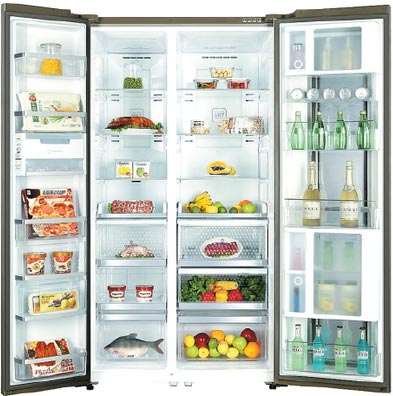Houses that think are in the future
 |
|
Haier's smart refrigerator, and part of the company's smart home system is displayed at an exhibition center in Shanghai. Photo provided to China Daily |
'Talking' refrigerator
 |
| Zap your way to better skin |
 |
| 3D technology enters world of fashion |
The rice grain-sized RFID marking is currently found on consumer products in a handful of countries but not in Chinese superstores, where bar codes are used.
The smart refrigerator would function optimally today only if it scans every object's bar code, in a cumbersome process that is unlikely to be popular, according to Li Li, the general manager of Haier U+ Smart Home System.
The country's industry chain is not ready yet, she told reporters in May at a briefing in Qingdao, the company's headquarters. "We'll have to wait until such a time when things come with RFID tags."
But the prospects of smart homes struck Haier in 1999. "We've invested a lot of resources in research since then," Li tells China Daily in an e-mail.
She likens the development of the company's software-enabled architecture for smart-home goods to building an equivalent of the Internet. Customers, Li says, can design and download their own phone apps depending on their lifestyle.
Xiaomi, meanwhile, aspires to link all electronic gadgets connected by Wi-Fi.
"After you turn on a device, say a camera, the router app on your phone will automatically start searching for the camera (in your house)," Tang says. Chinese couples may find it easier to monitor children and the elderly from offices, at costs relatively lower than Western-made products, he adds.
China Household Electrical Appliances Association, an industry nonprofit, estimates the market for smart household appliances in China will touch 1 trillion yuan ($162 billion) by 2020. Its value was about 100 billion yuan in 2013.






















